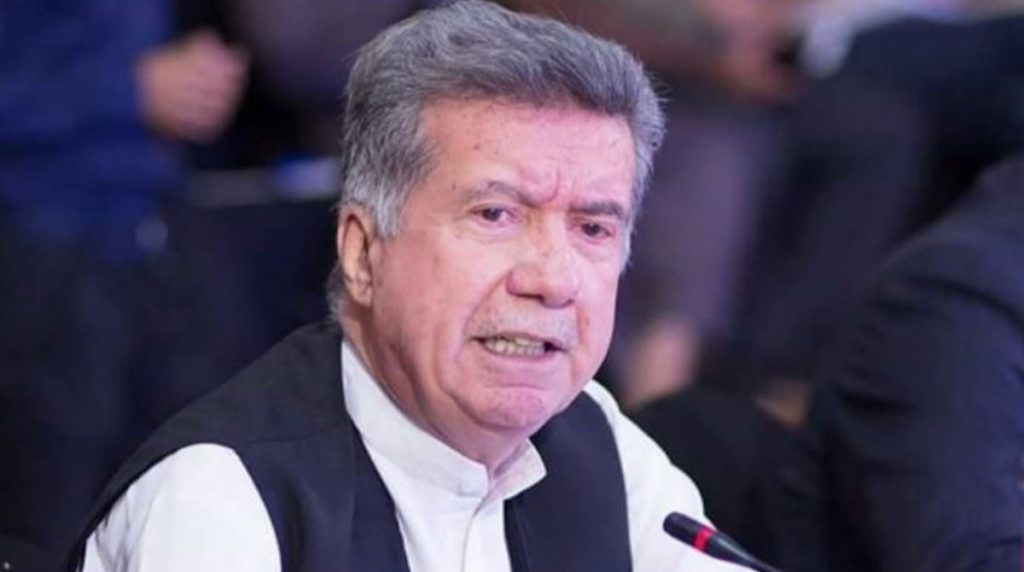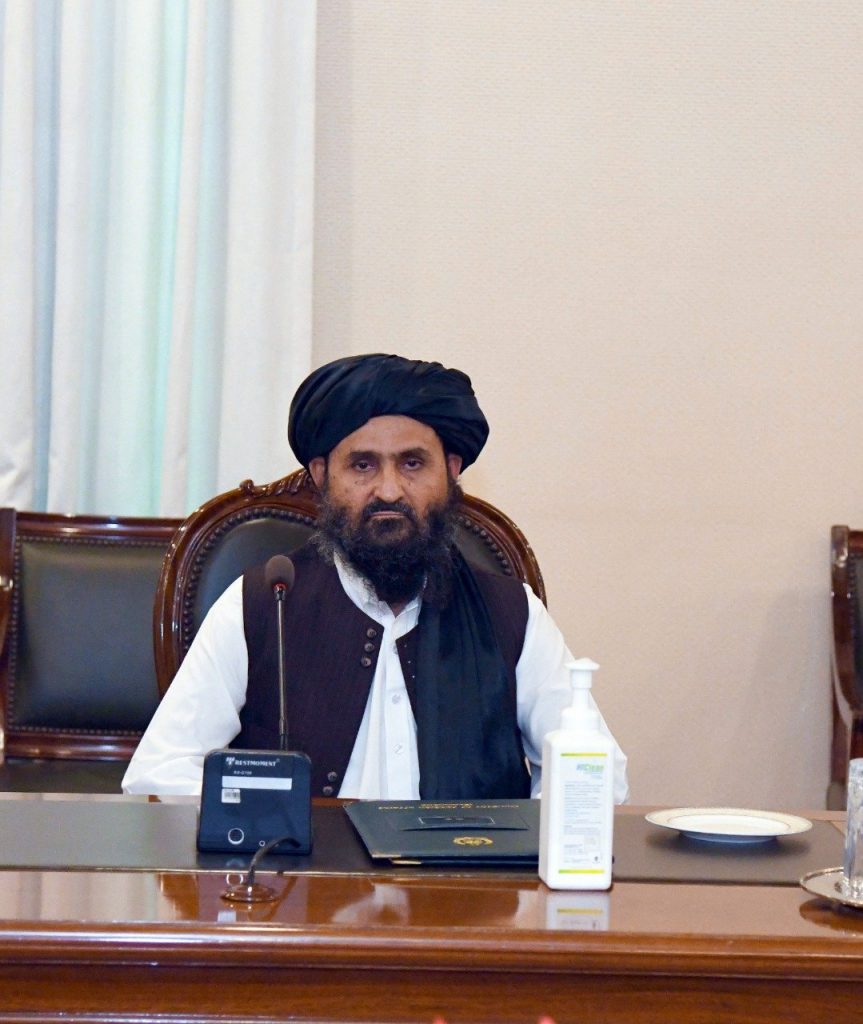
- Afrasiab Khattak, a former Pakistani senator and analyst of regional affairs, says Pakistan pursues its interests in Afghanistan through the Taliban and that the group’s approach towards the peace process has remained unchanged as it still favors violence in the country.
- The Afghan Ministry of Foreign Affairs on Friday reacted to Baradar’s video in Pakistan and said the presence of the Taliban leaders and their fighters in Pakistan is a “clear violation of Afghanistan’s national sovereignty,”
- The Ministry of Foreign Affairs in a statement said the presence of the Taliban leaders and their members will continue the ongoing crisis and instability in the region and it will challenge the efforts to ensure lasting peace in Afghanistan.
- The ministry called on Pakistan to prevent insurgents from using its territory against Afghanistan, adding that closing the safe havens of insurgents and terrorists is pivotal for a peaceful end to the crisis in Afghanistan.
Afrasiab Khattak, a former Pakistani senator and analyst of regional affairs, says Pakistan pursues its interests in Afghanistan through the Taliban and that the group’s approach towards the peace process has remained unchanged as it still favors violence in the country.
In an interview with Afghanistan news portal TOLOnews earlier this week, Khattak said “Pakistan wants dominance in Afghanistan under the pretext of strategic depth and they have pursued this policy. They see the Taliban as a tool for themselves. We can say that their (the Taliban’s) approach has changed if they stop violence and say that they will feel the people’s pain,” Khattak said.
When asked about the purpose of the establishment of the Pashtun Tahaffuz Movement, Khattak said the movement emerged because of the political repression that the Pakistani government imposed on Pashtuns.
This comes as the Taliban deputy political leader Abdul Ghani Baradar visited Pakistan last week shortly after the peace negotiators paused their talks for 23 days two hold consultations with their leaders about issues around the next round of talks that are expected to begin on Jan. 5, 2021.
A video (see below) released on social media showed Baradar among a group of people, apparently the Taliban members, in Karachi, Pakistan, where he said that all decisions about the peace process are being finalized in consultation with the Taliban’s leadership and the Taliban’s cleric council in Pakistan. Baradar said the Taliban’s leadership exists in Pakistan.
The Taliban have so far not commented about the place of Baradar’s meeting with wounded members of the group.
The Afghan Ministry of Foreign Affairs on Friday reacted to Baradar’s video in Pakistan and said the presence of the Taliban leaders and their fighters in Pakistan is a “clear violation of Afghanistan’s national sovereignty,”
The Ministry of Foreign Affairs in a statement said the presence of the Taliban leaders and their members will continue the ongoing crisis and instability in the region and it will challenge the efforts to ensure lasting peace in Afghanistan.
The ministry called on Pakistan to prevent insurgents from using its territory against Afghanistan, adding that closing the safe havens of insurgents and terrorists is pivotal for a peaceful end to the crisis in Afghanistan.

Afghanistan is also hit by a wave of killings targeting human rights activists and journalists across the land-locked country. On December 25, woman rights activist Freshta Kohistani gunned down in Kapisa province by terrorists yesterday. This was the second prominent killing this week. On Tuesday, journalist Rahmatullah Nikzad was killed in Ghazni.
On December 24, Tahir Zuhair, the Afghan acting minister of Information and Culture had said that the Taliban must not be absolved from acts of targeted killings by merely denying their involvement.
Zuhair said that the continued targeted killings of Afghan journalists is severely impacting the status of press freedom in Afghanistan, and he called on the Ministry of Interior to define a new security strategy to help ensure security and safety for media workers and journalists.
“Whether the Taliban accepts it or not, they are responsible for all such acts of violence that happen in Afghanistan,” said Zuhair.
(Source: Tolo News)
